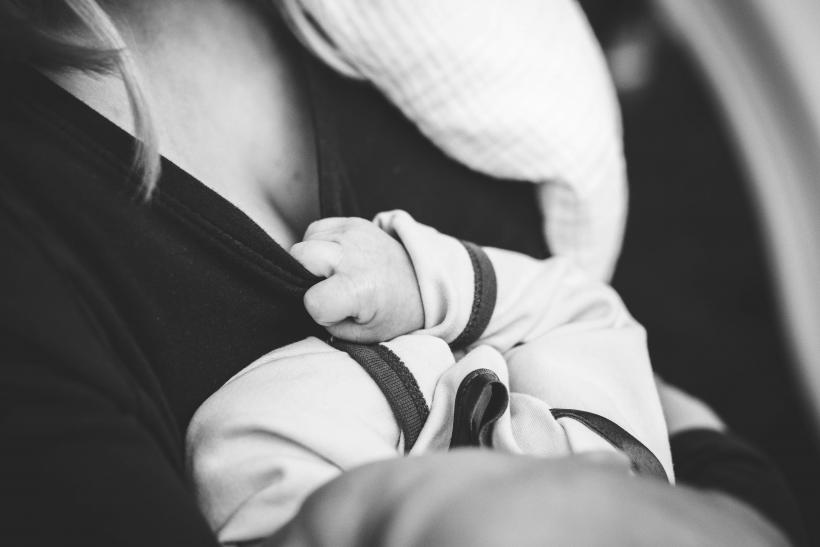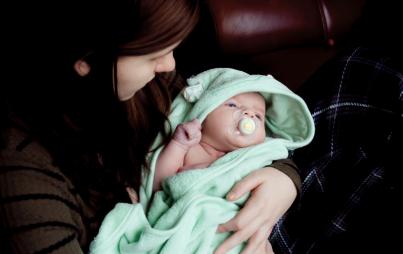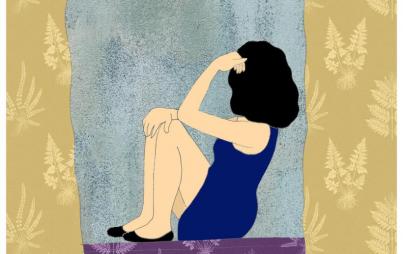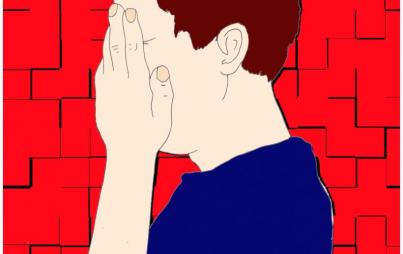
Photo by Jordan Whitt on Unsplash
This article first appeared on The Refresh and has been republished with permission.
I never thought about breastfeeding until I did it myself. Until I failed at it myself, I suppose I should say. Twenty-four years old, I was a young mother with a tiny scrawny baby at my breast, screaming himself purple. Nurses who wanted to help but were also getting impatient were grabbing at my nipples, scrunching them up into triangles, brutally stuffing them into his mouth. He didn’t suck, he just screamed and screamed and screamed and screamed. He wouldn’t suck. It was like he had no idea that was what he was meant to do. In the end we tricked him — squirted glucose from a plastic pipe taped to my chest into his mouth — and he slowly started to realize he was meant to suck and not scream. By the time I took him home, we were breastfeeding okay — mother and baby were doing fine.
Breastfeeding, after that rocky start, was an amazing experience. The deep satisfaction, that calm you feel as you connect with your baby, it’s hard to describe. I breastfed my first son for eleven months.
Breastfeeding was good for me and great for him.
There are so many benefits to breastfeeding: your baby’s health, your own health, the sense of pride you feel in knowing you’re providing everything they need to survive with your own body, the closeness of your relationship, the certainty you feel, that effortless way you know you are their primary caregiver. No sterilizing! The ease with which you can leave the house, the ease with which you can feed at night! Breastfeeding’s not just the best thing for your child, it’s a beautiful, wonderful thing for you, too.
Twelve years later, I got pregnant again.
I just assumed breastfeeding would work out this time. But it didn’t.
I wasn’t young anymore — this was a geriatric pregnancy — but for those first few days I felt more insecure and unconfident than I ever had. I guess sleep deprivation combined with another baby who didn’t want to suck — I looked at my beautiful newborn and wondered whether I should start to get paranoid. WHAT’S WRONG WITH MY NIPPLES, BOYS? But unlike his big brother, this baby didn’t scream and scream and scream and scream. He just closed his eyes and pouted, moving his nose away decidedly. Nothing I did could get him to latch on. By day four in the hospital, my baby had lost 9% of his body weight, and the pediatrician said I would have to use the two things I didn’t want to use more than anything else in the world: artificial milk and a milk pump.
I pumped for a month — on a good day, maybe 50% of the milk he was drinking came from my breasts. But on a bad day, maybe 10%. Because he had never latched on, I wasn’t really producing that much milk — 40 minutes for 20ml. It was frustrating, it was painful. It was a humiliating experience. And one that meant I had no time for anything else — certainly not for my big boy, who was now almost a teenager, but also no time for sleep! I was constantly connected to my breast pump, and after a month, I decided I could take it no more. I stopped pumping. My baby was a purely bottle-fed baby.
Part of me was heartbroken. A lot of me was relieved.
Mothers who don’t breastfeed get a lot of flak nowadays. The criticism is intense. At the playground, a young mother says her baby still wakes up multiple times a night. “How often does yours wake up?” She asks. I wince. “Sometimes once,” I say. “Sometimes he sleeps through.” She looks at me, understandably enough, as if she hates me. I don’t blame her, to be honest. But then her friend speaks up. “Yeah, because you’re bottle-feeding,” she says. “So you know. Your baby sleeps through the night, but it’s because you’re indulging in toxic practices!”
“Women who don’t breastfeed should feel shame!” another woman at a mother and baby group tells me. “Not in your case; you wanted to, and your baby wouldn’t. That’s different. Nobody judges you. But women who just refuse to breastfeed for stupid reasons — because they want their breasts to look nice for their husbands, or because they think they’re being feminists — they should be ashamed. They’re damaging their babies’ health just because they are stupid. I think they should be fined, really. For the cost their vanity causes our healthcare services!”
You Might Also Like: Exclusive: Military Base Bars Women From Breastfeeding In Public
When I first realized I wasn’t going to really breastfeed, I was determined that everyone knew why. Every time I bought a packet of formula from the supermarket, I made sure I told the cashier that my son had refused my breast. “He refused my breasts!” I’d say, as she scanned his artificial milk, totally indifferent to everything I was telling her. “I really wanted to breastfeed, but he wasn’t having any of it! It’s not my fault, if I hadn’t given him formula, he might’ve starved to death!”
It was incredibly important to me that people knew I had tried — that I was the right kind of formula mother — one who had tried, one who had tried her best. I hadn’t chosen formula to save my boobs from sagging or to force my partner to do night feeds. I wasn’t too vain, or too selfish, or too uneducated to breastfeed. I certainly was not too feminist to breastfeed. I had tried and failed, but at least I had tried. I felt next to no sympathy for or solidarity with those women. The ones who chose bottles.
I see things differently now. I still think — in fact, I know, because it is a scientific fact, that breastfeeding is undoubtedly better for babies. But here’s the thing I wonder to myself: if a woman truly doesn’t want to breastfeed, if she is really certain she doesn’t want to, and for whatever reason, even vain reasons, or even, heaven, forbid, feminist ones, well, should she really be shamed into doing so?
Are the physical benefits of nourishing your baby with breastmilk really totally outweighed from the psychological strain of women being guilted and shamed into doing something they don’t want to do?
We talk a lot about consent in these days of #MeToo — but mothers don’t seem to need to consent to breastfeeding. When you become pregnant, your breasts no longer belong to yourself. They belong to your baby, and to society.
And I also wonder, because breastfeeding is such a wonderful experience, whether trying to guilt and shame women into breastfeeding is worth it anyway. I think women should be supported and encouraged to breastfeed. I think with enough support, most women will choose to feed their children this way. But when a woman who is already feeling like she doesn’t want to use her breasts as feeding instruments is told that formula is basically poison, that artificial milk is vastly inferior, that breastfeeding mothers are lazy losers, that she owes it to the world to breastfeed — I wonder if this draconian attitude won’t have the very opposite effect from the one intended? I think more support will lead to more women breastfeeding — breastfeeding information, lactation consultants, breastfeeding get-togethers — and not more shame. Shame doesn’t help anyone. Shame truly is a toxic practice.








